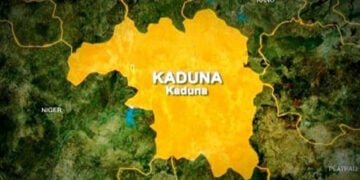Chairman of the Federal Inland Revenue Service (FIRS), Dr Zach Adedeji, has called for strengthening the present Internally Generated Revenue (IGR) capacity to ensure that the revenue administration processes, especially at the subnational level, become as efficient as possible to optimise the collection of IGR for socioeconomic and human development.
Adedeji, who also doubles as the chairman of, the Joint Tax Board (JTB), stated this on Wednesday in an address at the 155 Meeting of the JTB at Zuma Rock Resort, Suleja, Niger State.
He said: “It is with the above in mind that the theme of this 155th Board Meeting of the Board, “Post Reform: Repositioning Revenue Authorities for Effective and Efficient Tax Administration”, was chosen.
“As President Bola Tinubu’s reform initiatives continue to unfold and as we await the submission of the Presidential Fiscal Policy and Tax Reforms Committee’s final reports, we must begin to look ahead to how the new dispensation can work. At the heart of this are the statutory revenue authorities across the tiers of government”.
“How do we position ourselves to exploit emerging opportunities? How do we deal with the ‘changes’ that are bound to occur? How do we manage or mitigate the challenges? How do we leverage technology and the disruptions that digital transformation has laid before us? How do we carry the people along and let them know they are the most essential and critical party in the tax ecosystem? How do we transform the outputs of the reforms and translate them to manifest in shared prosperity that is not only developmentally sustainable but also inclusive?”.
Adedji recalled that coming off the last seven months of 2023, a rejuvenated approach to revenue generation saw Niger State ending the year on a solid note, with total annual IGR performance crossing the N20 billion mark for the first time in the history of the state. At N21.67 billion, collections achieved over 28% growth over the total annual collection of N16.93 billion posted in 2022. Notably, the percentage growth rate was significantly higher than the cumulative sub-national growth rate of 23.17%.
He pointed out that the momentum was unrelenting going into the new year, with N7.03 billion collected in Q1 of 2024 as against N6.18 billion in Q1 of 2023.
Niger State Governor Mohammed Umar Bago, in his speech, noted that, like many others, the state recognises the critical role of Internally Generated Revenue in funding its developmental aspirations.
Bago, represented by the commissioner for budget and planning, Hon. Mustapha Ndajiwo, said, “Taxation reforms is the bedrock upon which our nation’s social services, infrastructure development and public welfare initiatives rest. Therefore, enhancing our revenue authorities is not merely a bureaucratic task but a moral imperative to ensure equitable growth and shared prosperity for all citizens”.
He said the theme of the 155 meeting of the JTB “underscores our collective commitment to innovation, efficiency and transparency in tax administration. It challenges us to rethink our strategies, streamline processes and harness technology to optimise revenue collection while minimising administrative burdens on our taxpayers. In doing so, we would uphold the principles of fairness and accountability that underpin our tax system”.
The secretary of the Joint Tax Board, Adesokan Olusegun, while fielding questions from journalists alongside other participants, pointed out that the new revenue collection drive focuses on organizations and individuals with responsibility to pay tax, and care is being taken not to inflict hardship on the vulnerable segment of society.
The executive chairman, Niger State Internal Revenue Service, Alhaji Mohammed Madami Etsu, expressed the state government’s commitment to improving IGR and blocking leakages, adding that hosting the meeting in the state was a testament to the fact that Niger State is safe and peaceful as participants from the 36 states of the federation and FCT have seen.





